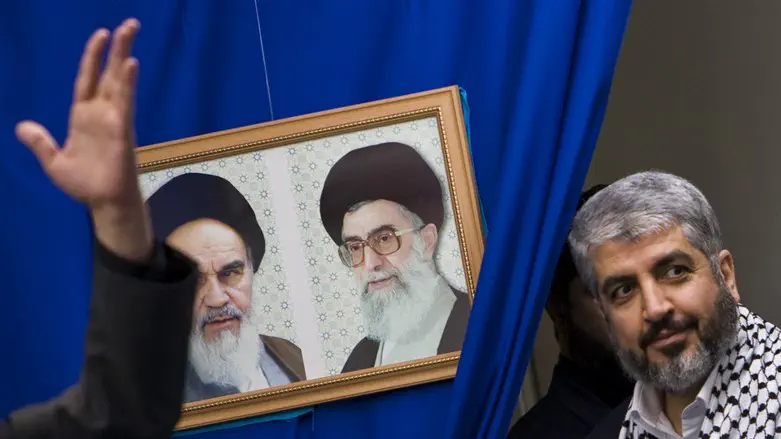
Following the death of Yahya Sinwar, the Hamas leader in the Gaza Strip, assessments are strengthening that the organization may face significant internal disagreements between two main groups, differing in their approach towards relations with Iran.
The first group includes Hamas activists who oppose complete reliance on Iran, which translates to the organization's subordination to Tehran. Members of this group believe that the relationship with Tehran, which provides military and economic support to Hamas, could endanger the organization's independent leadership and its goals.
The activists are expected to support Khaled Masha'al as the next leader of Hamas. Masha'al, who formerly served as the head of Hamas's political bureau, is viewed suspiciously by Iran due to his past support for the struggle to topple the Assad regime, contrary to Iran's policy. His supporters believe that Hamas should operate independently and not be completely dependent on Iran to further Palestinian Arab interests.
It should be noted that in 1997, Masha'al survived an assassination attempt by the Mossad in Jordan, which led to a diplomatic crisis between Israel and Jordan. Following the failed assassination attempt, Israel was forced to release Sheikh Ahmed Yassin, one of Hamas's founders, from prison as part of a compromise agreement with Jordan.
Conversely, the second group includes activists who support continued strategic ties with Iran, which is a key player in the regional struggle against Israel. Members of this group see the importance in continuing military and political cooperation with Tehran, which provides support to Hamas and other entities fighting against Israel. Supporters of this group hope to see Khalil al-Hayya, Sinwar’s deputy, as the next leader of the organization.
Al-Hayya, identified with the Iran-supporting camp, is expected to continue Sinwar's hardline approach and maintain the alliance with Iran, even at the cost of increasing Tehran's influence over Hamas.
The potential dispute between the two camps may create internal tensions within Hamas and affect the organization’s future policy, especially regarding the struggle against Israel and relations with regional countries.
While Masha'al's moderate line may lead to the opening of new diplomatic channels, al-Hayya's approach could deepen dependence on Iran and continue confrontations with Israel.
The leadership struggle will likely occur after achieving internal stability within the organization, but it may dictate the direction in which Hamas will go in the upcoming years - assuming that enough of it remains for either candidate to lead following the ongoing war with Israel.
